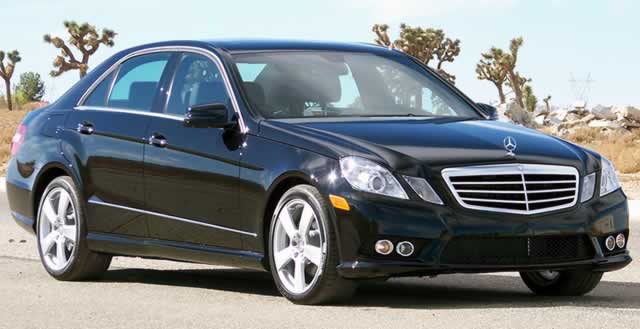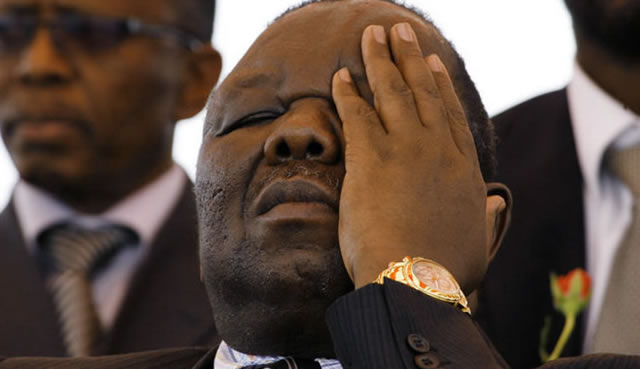Do ministers really need all these cars?


Ministers are entitled to a Mercedes Benz sedan E-Class either E300 petrol or E350 diesel as one of their many official vehicles
Lloyd Gumbo Mr Speaker Sir
Mr Speaker Sir, if MPs who are expected to be travelling between Harare and their constituencies on a weekly basis can do with one official vehicle, how come ministers whose business is usually in and around Harare can’t do it?
Government always takes flak for all things that go wrong in people’s lives to the extent that some men can blame it for impregnating a dozen women or for being irresponsible in life.
Everyone looks up to Government as the all-powerful authority that makes them succeed or fail in life even when destiny is in their own hands.
There are also others who think Government is responsible for their choice of a nagging husband or wife.
But Mr Speaker Sir, there are things that Government can and must do to be seen to be on the side of citizens, particularly when things are not going well.
All right-thinking Zimbabweans acknowledge the existence of illegal sanctions imposed on the country by the West.
They are also alive to their debilitating effects in various sectors of the economy but there are actions that they expect from Government to lighten the burden.
In the face of the same debilitating embargoes that sought to ground Government activities in the past two decades, one would have expected a serious consideration of priorities by authorities in terms of expenditure.
Successive National Budgets since the inclusive Government era have seen a huge chunk going towards recurrent expenditure while capital projects have been crying out for attention.
Wages have been chewing more than 70 percent, meaning Government is unable to channel adequate funds to the productive sector that was grounded by the Western-imposed sanctions.
If one were to consider the rate at which Zimbabweans are buying second hand vehicles from Japan and other goods from South Africa and Botswana, it is clear that a huge chunk of money that is channelled towards salaries is not circulating in the local economy.
Mr Speaker Sir, this is unsustainable in any economy, as such there is need for Government to bite the bullet and start from the executive.
The first positive measure to cut on costs and re-align Government expenditure is by reducing the number of vehicles that are allocated to ministers.
At the moment, ministers are entitled to Mercedes Benz E-Class sedan either E300 petrol or E350 diesel, added to a Range Rover Vogue or Landcruiser V8.
There is also a Jeep Grand Cherokee and another double cab that is said to belong to the ministry.
Deputy Ministers on the other hand get a Jeep Grand Cherokee, Toyota Prado or Land Rover Discovery and a double cab that is said to belong to the respective ministry.
Those with Parliamentary constituencies are also entitled to another vehicle under the Parliamentary Vehicle Loan Scheme, meaning that at the end of the day they will have at least three official vehicles.
In all fairness, Mr Speaker Sir, everyone acknowledges the impact that the sanctions have had on the economy but our concerns should translate to our priorities.
We cannot claim that we can bust the sanctions when our priorities are wrong. For instance, one would be justified to question whether driving a Range Rover new model shape 2014 upwards is one of the sanctions busting measures.
Mr Speaker Sir, if MPs who are expected to be travelling between Harare and their constituencies on a weekly basis can do with one official vehicle, how come ministers whose business is usually in and around Harare can’t do it?
Surely a double cab is good enough to be used as an official vehicle in Harare and even out in the rural areas where they need all-terrain vehicles.
Yes, ministers may be entitled to all those vehicles in a normal environment but not when ordinary citizens are finding life difficult to bear because of economic challenges.
Yes, ministers may feel comfortable and enjoy the ride in top-of the range vehicles but do they worry about what their constituents eat?
Do they also consider how their poor constituents are failing to make ends meet despite spending the whole day on the streets selling airtime for razor-thin profit margins?
While it may be difficult for ministers to trim their benefits, they must put people first by sacrificing for Zimbabweans as they always claim.
Ministers must be allocated cars from a Government vehicle pool during their tenure in Government.
When their tenure ends under whatever circumstances, the vehicles must remain Government property and be allocated to other departments that need vehicles.
For instance, a number of ministers and deputy ministers who were fired from Government recently are said to have left with vehicles that they bought at book prices.
That means those who replaced and are to replace them are also entitled to new vehicles.
But Mr Speaker Sir, can our economy sustain such extravagance?
Those vehicles had only been used for less than two years since the new Government came into office, meaning they were still good enough to be driven by new ministers.
Buying new cars for every minister whenever they are appointed is not sustainable in an economy that is under siege from Western onslaught.
There is every reason to end this tendency of letting former ministers go away with all vehicles that they use during their tenure.
Secondly, there is a serious need to review the type of vehicles that are allocated to ministers.
This will take a paradigm shift by the Government because some ministers have developed a sense of entitlement. Mr Speaker Sir, a double cab is surely not a modest vehicle by any standards, so one cannot claim that ministers will be demeaned if they drive in such vehicles.
Finance and Economic Development Minister Patrick Chinamasa is on record needing to cut Government expenditure but there is need for a connection between words and action.
How do you expect civil servants to remain silent when they see their ministers driving top-of-the-range vehicles yet their own salaries are insufficient to pay their rentals?
Government would save a lot of money if ministers and their deputies got one or at most two double cab vehicles.
Reducing the number and changing the type of vehicles ministers drive will contribute significantly to the reduction of other costs like service and fuel on the exchequer.
Feedback: [email protected]








Comments